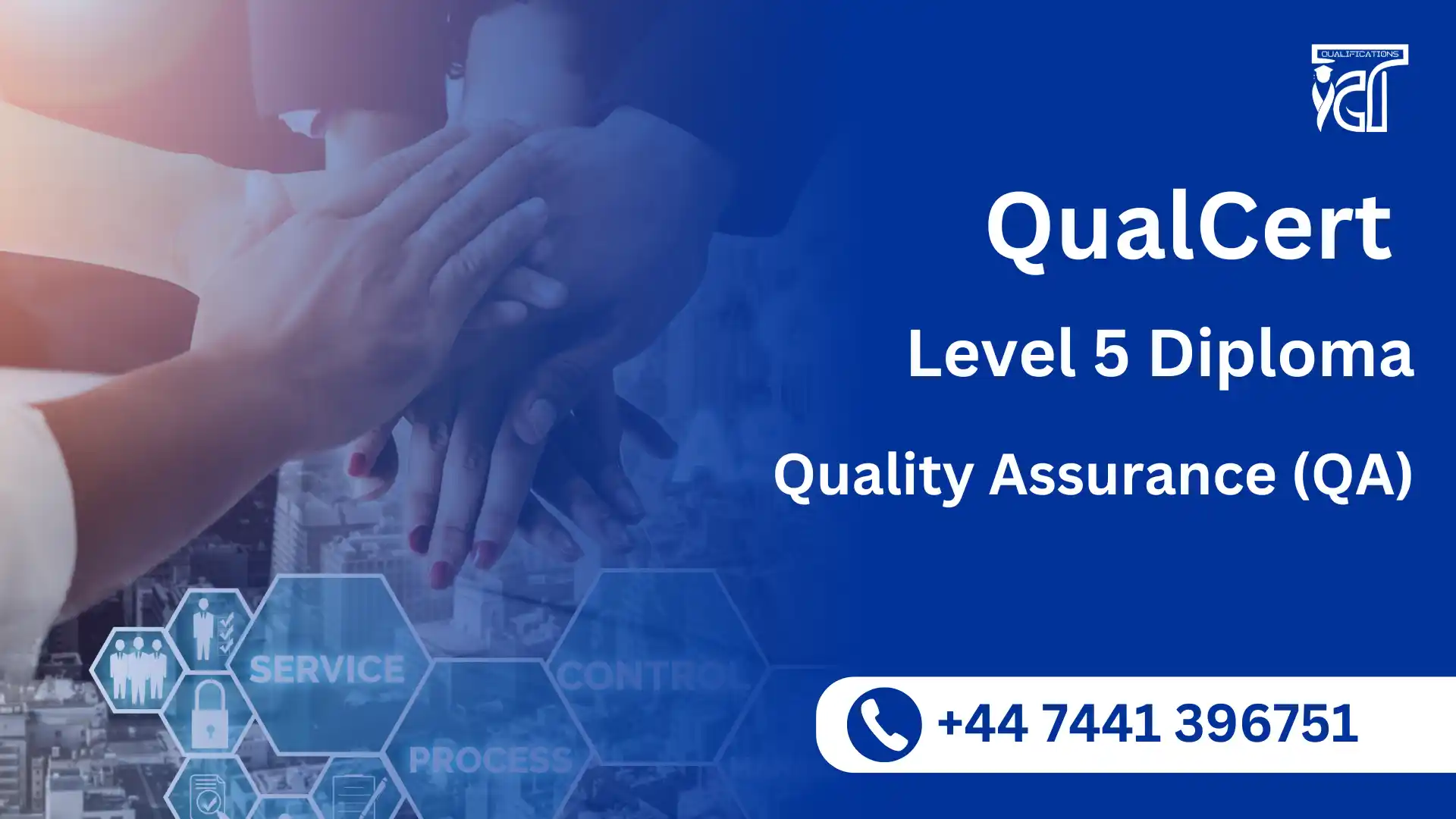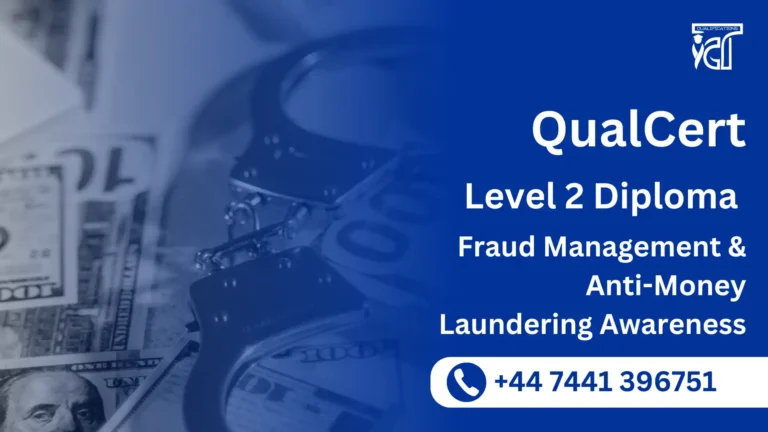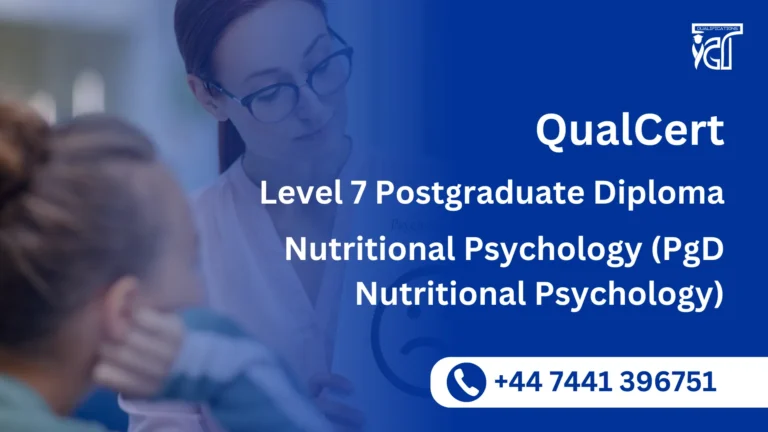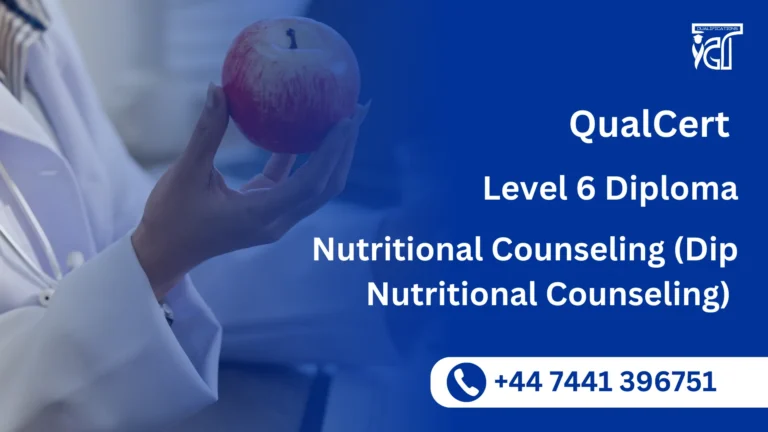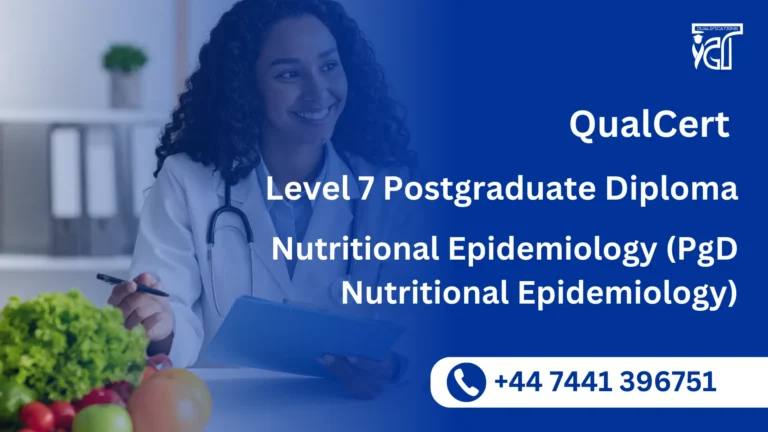The QualCert Level 5 Diploma in Quality Assurance (QA) is a professionally developed qualification that provides learners with a strong foundation in the principles and practices of quality assurance across various industries. This course is ideal for individuals looking to begin or advance their careers in QA by developing the technical skills, knowledge, and confidence needed to contribute to quality-driven operations.
In today’s global economy, organizations are under increasing pressure to deliver consistent quality, meet regulatory requirements, and exceed customer expectations. This diploma equips learners with practical tools and theoretical insights to ensure quality standards are met and maintained through systematic planning, inspection, testing, and continuous improvement processes.
The course focuses on essential areas such as quality planning, documentation control, auditing, corrective action procedures, and quality system implementation aligned with international standards like ISO 9001. Whether you are currently working in a technical role or seeking to enter the quality assurance field, this qualification offers a valuable pathway to a rewarding and impactful career.
With a blend of academic learning and industry-relevant content, the QualCert Level 5 Diploma in Quality Assurance (QA) prepares learners to play a critical role in ensuring organizational excellence, regulatory compliance, and long-term success.
QualCert Level 5 Diploma in Quality Assurance (QA)
The QualCert Level 5 Diploma in Quality Assurance (QA) certification is designed to provide a structured and comprehensive framework for developing expertise in quality assurance. Below is the qualification structure, including the Total Qualification Time (TQT) 600, Guided Learning Hours (GLH) 360, and 75 Credits associated with the program.
| Unit Ref# | Unit Title | Credit | GLH | TQT |
| QC07012 – 1 | Fundamentals of Quality Assurance | 15 | 60 | 100 |
| QC07012 – 2 | Quality Control Techniques | 15 | 60 | 100 |
| QC07012 – 3 | Auditing and Inspection Techniques | 15 | 60 | 100 |
| QC07012 – 4 | Data Analysis in Quality Assurance | 15 | 60 | 100 |
| QC07012 – 5 | Continuous Improvement Process (CIP) | 15 | 60 | 100 |
| QC07012 – 6 | Communication and Reporting in QA | 15 | 60 | 100 |
GLH (Guided Learning Hours) and TQT (Total Qualification Time) are terms commonly used in vocational qualifications to help define the amount of time a learner is expected to spend on their studies.
1. GLH (Guided Learning Hours)
GLH refers to the number of hours a learner spends being directly taught, supervised, or supported during their course. This includes the time spent in activities such as:
- Classroom instruction
- Practical workshops
- One-on-one tutoring or mentoring sessions
- Online learning sessions with tutor support
In other words, GLH represents the time that learners are actively engaged with their instructors or learning activities.
2. TQT (Total Qualification Time)
TQT represents the total amount of time a learner is expected to invest in completing a qualification, including:
- GLH (Guided Learning Hours): Time spent on direct learning, as explained above.
- Self-Directed Learning: This includes time spent on independent study, research, assignment completion, preparation for exams, and any other work the learner does outside of direct teaching hours.
TQT is a broader measure that includes all the time required to achieve the qualification. It helps learners and employers understand the overall commitment required for the qualification.
Key Differences Between GLH and TQT:
- GLH focuses on direct learning with guidance or supervision.
- TQT includes GLH as well as independent study time and other learning-related activities.
Example:
If a qualification has a TQT of 600 hours and a GLH of 250 hours, it means the learner should spend 250 hours in direct learning (classroom, online, or tutor-led sessions) and 350 hours on independent study or research.
Upon successful completion of this qualification, learners will be able to demonstrate advanced understanding and application of key quality assurance principles, methodologies, and practices across various industries.
1. Core Principles of Quality Assurance
- Comprehend the foundational concepts and importance of quality assurance within diverse organizational contexts.
- Understand the structure and function of quality management systems and their role in maintaining product and service excellence.
- Recognize the impact of regulatory frameworks and industry-specific standards on QA practices.
- Evaluate how quality assurance contributes to achieving organizational goals and improving customer satisfaction.
2. Quality Control Methods and Tools
- Gain knowledge of essential quality control techniques, including Statistical Process Control (SPC) and sampling methods.
- Apply commonly used QC tools such as control charts, check sheets, cause-and-effect diagrams, and Pareto analysis.
- Distinguish between quality control and quality assurance functions and their interrelationship.
- Identify, analyze, and resolve quality-related issues using corrective and preventive action (CAPA) strategies.
3. Auditing and Inspection Practices
- Understand the principles of quality auditing and the steps involved in conducting internal and external audits.
- Acquire practical skills in inspection methods to assess compliance with defined quality standards.
- Learn to identify non-conformities, document findings, and recommend actionable improvements.
- Recognize the importance of audits in maintaining accountability, consistency, and continuous improvement in QA systems.
4. Data Analysis for Quality Improvement
- Develop the ability to analyze and interpret quality data using statistical techniques.
- Utilize data to uncover trends, pinpoint inefficiencies, and drive decision-making in quality initiatives.
- Understand the role of data-driven insights in process optimization and continuous improvement.
- Apply software tools for data visualization, reporting, and quality performance tracking.
5. Continuous Improvement Strategies
- Explore proven methodologies such as Six Sigma, Lean, and Kaizen to drive process and quality improvements.
- Learn to implement continuous improvement processes (CIP) to enhance efficiency, reduce waste, and improve outcomes.
- Formulate strategies to embed a culture of continuous improvement within an organization.
- Evaluate the impact of improvement initiatives on organizational performance and stakeholder satisfaction.
6. Effective Communication and Quality Reporting
- Strengthen communication skills to articulate QA findings, proposals, and performance metrics to diverse stakeholders.
- Prepare clear, structured, and professional reports detailing audit results, quality metrics, and corrective actions.
- Develop presentation skills for delivering QA insights and strategies to management teams and clients.
- Appreciate the value of transparent and timely communication in promoting quality awareness across departments.
The QualCert Level 5 Diploma in Quality Assurance (QA) offers a wide range of benefits for individuals seeking to advance their knowledge, skills, and career in the field of quality assurance. Whether you’re entering the QA profession or looking to formalize and strengthen your existing experience, this course delivers real value for your personal and professional development.
1. Recognized Professional Qualification
Achieve an internationally respected diploma that validates your expertise in quality assurance and enhances your credibility in the job market.
2. Career Advancement Opportunities
Qualify for roles such as Quality Assurance Officer, QA/QC Inspector, Internal Auditor, or Quality Supervisor across various industries including manufacturing, engineering, healthcare, construction, logistics, and more.
3. Hands-On Practical Skills
Gain the tools and techniques to apply quality control methods, conduct audits, interpret data, and implement continuous improvement processes in real-world settings.
4. Strong Foundation for Higher-Level Studies
Build a solid academic and professional base that supports progression to advanced qualifications such as the Level 6 or Level 7 Diploma in Quality Assurance, or specialized certifications like ISO 9001 Lead Auditor and Six Sigma.
5. Applicable Across Multiple Industries
The knowledge and competencies gained are transferable across sectors, allowing for flexible career options and greater job security in a wide range of environments.
6. Improved Workplace Efficiency
Learn how to identify inefficiencies, reduce waste, enhance productivity, and ensure compliance with international quality standards—making you a valuable asset to any organization.
7. Support Organizational Excellence
Equip yourself to play a key role in driving quality culture, improving customer satisfaction, and supporting continuous improvement initiatives within your team or company.
8. Increased Employability
With employers increasingly prioritizing quality assurance, this qualification sets you apart from the competition by demonstrating your commitment to best practices and performance excellence.
The QualCert Level 5 Diploma in Quality Assurance (QA) is designed for individuals who are passionate about improving quality systems, maintaining industry standards, and contributing to organizational excellence. The ideal learner for this course includes:
1. Early to Mid-Level Quality Professionals
Individuals currently working in quality assurance, quality control, or inspection roles who want to deepen their knowledge and move into supervisory or specialist positions.
2. Technicians and Supervisors
Production line supervisors, technicians, or operations staff responsible for maintaining product or service quality in industrial, manufacturing, or service environments.
3. Engineers and Technical Staff
Professionals in engineering, maintenance, or process improvement roles who want to gain formal training in quality assurance to complement their technical expertise.
4. Career Starters in QA/QC
New entrants to the quality field seeking a recognized qualification to start a career in quality assurance and compliance.
5. Compliance and Audit Assistants
Staff involved in internal audits, regulatory compliance, or quality documentation who want to strengthen their understanding of QA systems and best practices.
6. Graduates and Diploma Holders
Individuals with a Level 4 qualification or high school diploma who are interested in pursuing a structured and career-focused path in quality assurance.
7. Entrepreneurs and Small Business Owners
Owners or managers of small businesses who want to implement effective quality assurance processes to improve products, services, and customer satisfaction.
This course is ideal for detail-oriented, analytical individuals who are eager to contribute to quality improvements, reduce errors, and support compliance and efficiency in their workplace or organization.
Entry Requirements
Register Now
Qualification Process
Qualification Process for the QualCert Level 5 Diploma in Quality Assurance (QA)
- Self-Assessment:
Begin by evaluating your eligibility to ensure you meet the qualification requirements, including work experience, knowledge, and language proficiency. - Registration:
Complete your registration by submitting the required documents, including a scanned copy of a valid ID, and paying the registration fee. - Induction:
An assessor will conduct an induction to confirm your eligibility for the course and explain the evidence requirements. If you do not meet the criteria, your registration will be canceled, and the fee will be refunded. - Assignmnets & Evidence Submission:
Provide all assignmnets and the necessary evidence based on the assessment criteria outlined in the course. If you are unsure of the required evidence, consult with the assessor for guidance on the type and nature of evidence needed. - Feedback and Revision:
The assessor will review your submitted evidence and provide feedback. Evidence that meets the criteria will be marked as “Criteria Met,” while any gaps will be identified. You will be asked to revise and resubmit if needed. - Competence Evidence:
Submit final evidence demonstrating that all learning outcomes have been met. This evidence will be marked as “Criteria Met” by the assessor once it is satisfactory. - Internal Quality Assurance (IQA):
The Internal Quality Assurance Verifier (IQA) will review your evidence to ensure consistency, quality, and compliance with standards. - External Verification:
The IQA will submit your portfolio to QualCert External Quality Assurance Verifiers (EQA) for final confirmation. The EQA may contact you directly to verify the authenticity of your evidence. - Certification:
Upon successful completion of all checks, QualCert will issue your official certificate, confirming that you have attained the QualCert Level 5 Diploma in Quality Assurance (QA).

